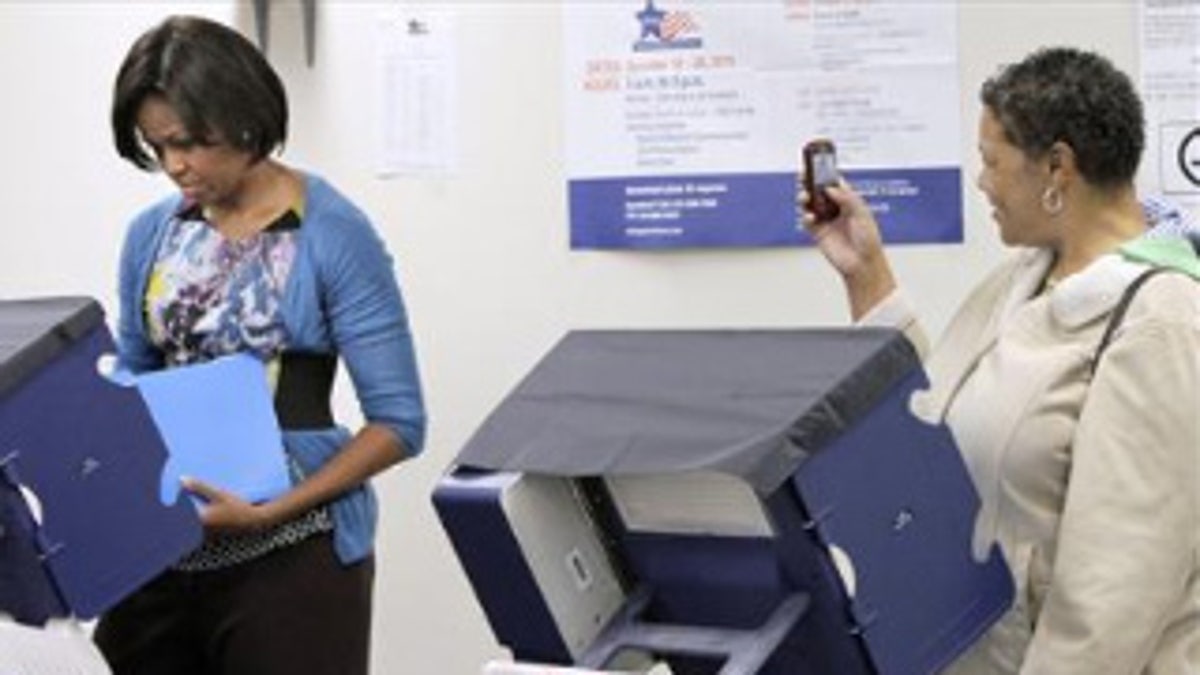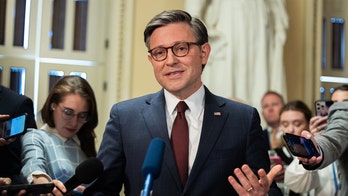
AP Photo
Questions arose late Thursday over whether First Lady Michelle Obama engaged in unlawful electioneering during a conversation with a fellow voter at a Chicago polling place.
Obama cast her early ballot at the Martin Luther King Center in Chicago, where she stopped for photos with other early voters. One of those voters, 56-year-old electrician Dennis Campbell, told print pool writer Abdon M. Pallasch Obama encouraged him to vote to support the administration's agenda.
"She was telling me how important it was to vote to keep her husband's agenda going," Campbell said.
According to Illinois state law, such encouragement is barred from polling places. "No judge of election, pollwatcher, or other person shall, at any primary or election, do any electioneering or soliciting of votes or engage in any political discussion within any polling place, within 100 feet of any polling place," the statute reads.
But did Obama actually break the law?
It all depends on what Obama actually said to the group of voters. Had she specifically told Campbell he needed to vote for a candidate who would support President Obama's agenda, she would indeed have violated Illinois election laws, as would someone wearing a campaign button or distributing political literature inside a polling place. But according to a spokesman for the Chicago Board of Elections, Obama made no such statement.
Rather, the elections official said, Obama told the group how important it is to vote early and vote in general, a perfectly appropriate suggestion at a polling place. Campbell's characterization of the conversation may simply have included his political position, that he voted "to keep her husband's agenda going," but not that the first lady had specifically encouraged Campbell to support Obama-friendly candidates.
Even if one of the other voters had mentioned their support for President Obama and the first lady agreed, she would still not be in violation of election statutes because she would not, in that case, have initiated the political conversation. The Chicago Board of Elections has not, at this time, made an inquiry into the matter.
Pallasch, of the Chicago Sun-Times, told Fox News the conversation seemed completely innocuous based on Campbell's recollection. "When I wrote the pool report and the story, it did not occur to me that Mr. Campbell's second-hand account of his mutually agreeable conversation with Mrs. Obama might constitute a violation of the law," Pallasch wrote in an email responding to a Fox News request.




